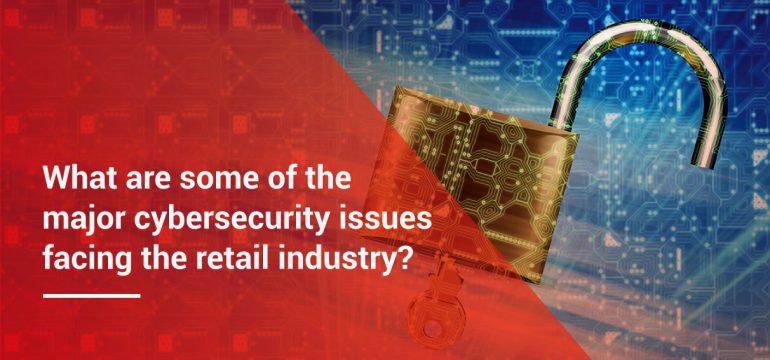The retail sector has always been at the risk of cyberattacks. The industry has already seen high-profile data breaches, some of which have happened in the recent past at large retail brands, lucrative to cyberattackers, such as Target, TJX and Home Depot.
One of the major reasons for these attacks is the fact that the number of vectors is huge. This industry sees a large volume of cards, cash, POS and online transactions on a regular basis making retail a sought after target for cyberattackers.
Especially nowadays, the retail sector is increasingly moving towards digital and while this will bring a plethora of opportunities, the risks of cyberattacks also automatically become immense. The numbers for various surveys have said it aloud – a 2018 report found that 50% of retailers have been breached in the past year. The monetary consequences for retailers can also be major – according to a KPMG study, 19% of customers said they would completely stop shopping at a retailer over a hack while 33% said they would not shop at the same retailer for more than three months.
These are increasingly troubling statistics and hence, it is important that retailers fix various cybersecurity issues such as:
- POS Security Vulnerabilities
One of the reasons why POS systems have a high-security risk is due to the soaring stakes involved. These systems collect data for hundreds of transactions every single day, making it a veritable gold mine for hackers. These systems are also more vulnerable to malware because of the very nature for what they are used for.
As a tool which is used extremely regularly, network administrators do not get the time to ensure that the correct updates and patches are run on the system, making it vulnerable to new and advanced threats.
- Malware-as-a-service
Of late, malware, especially ransomware – is readily available for download from the dark web. Even amateurs, armed only with criminal intent can access vulnerable retail channels and launch an attack. This naturally raises the sheer number of possible attackers, and that increases the need for retailers to bolster sensitive points in their network. Network security along with endpoint security is extremely vital for retailers and products such as Seqrite’s UTM are proven to safeguard retail enterprise networks.
- Human factors
An enormous amount of cyber risks arise from human factors. In the retail industry, these human factors may not always be controllable, as it employs a large number of low-skilled workforce with high attrition rates, along with a considerable amount of third party interfacing through the supply chain.
- Increasing integration with Internet of Things
The Internet of Things (IoT), which essentially connects devices like refrigerators, TVs, other home appliances and even cars to the web, is seeing a heavy adoption. Its potential in the retail industry is immense with companies trying to integrate in-store cameras, sensors etc. with the shoppers’ smartphones.
With multiple devices connecting to an organization’s network, the risk of having unguarded entry points to the system increases. Some of the cyber experts refer to this phenomenon as the ‘Internet of Vulnerabilities’ and if appropriate measures to shield from attacks are not undertaken, the retail industry is nothing more than a fertile hunting ground for cyberattackers.
- Security on mobile devices
Mobile phones are ubiquitous and are becoming one of the top tools for shopping. As per a Deloitte report, the younger generation especially 25-34-year-olds are heavily inclined to use mobile devices for browsing, shopping and purchasing.
With a rise in usage of the same by employees within office, a company’s network is suddenly under a deluge of connections some of which might be host to dangerous malware.
This in turn suddenly puts, not only the network under threat but also all the connected devices.
The retail industry is in a vulnerable state and is a target for attacks by organized cybercriminals as well as opportunistic hackers. It is the retail industry’s onus to protect its own operations as well as the critical information of their customers.
It is essential that retailers make use of well-established security practices, frameworks, and solutions like Seqrite to safeguard their customers’ data and their business operations.




